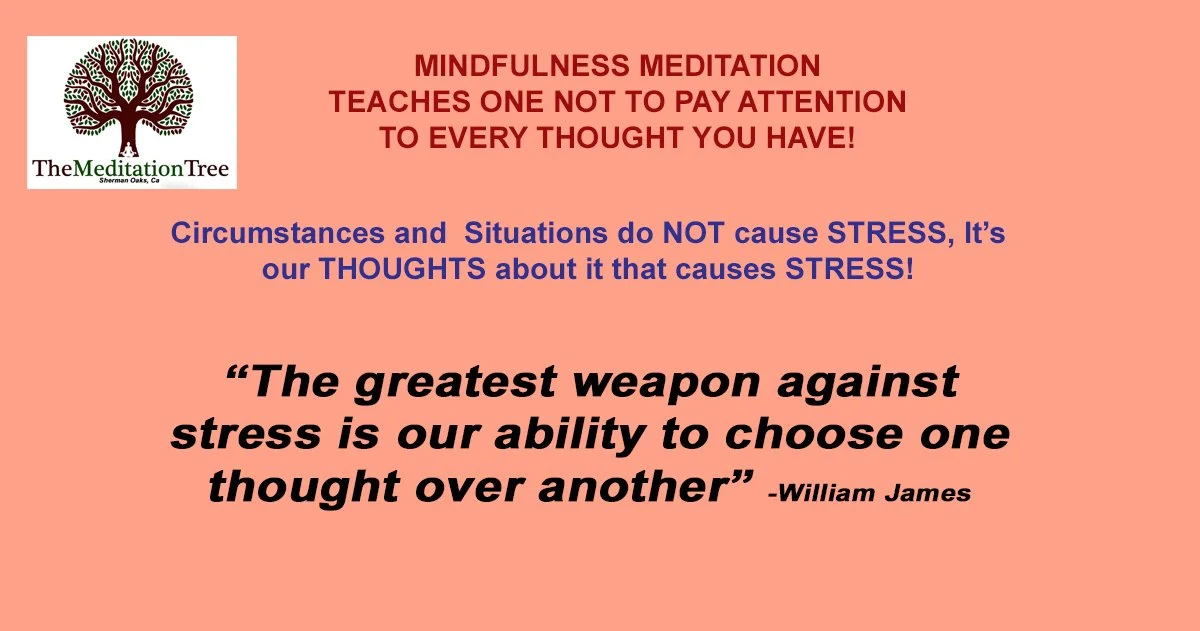Mindfulness Meditation is based upon the foundation and teachings of an ancient Indian mindfulness practice focused on developing self-awareness and a deep understanding of reality by observing bodily sensations and the natural breath and our thoughts and feelings without judgment. It is a program that helps people improve their emotional and physical well-being. It helps with stress, anxiety, sleep quality, focus, blood pressure, and much more. The mindfulness practices involved in this program also helps one to find a more cantered, relaxed and calmer lifestyle.
In today’s fast-paced world, stress and anxiety have become common issues among most people. Many people search for ways to cope without relying only on medication or unhealthy habits. One method that keeps gaining attention is Mindfulness Meditation. But does it really work, or is it just another wellness trend? Let’s break it down.
What Is Mindfulness-Based Meditation?
The technique involves focusing on the breath as an anchor and observing bodily sensations as they arise, allowing thoughts and emotions to pass without attachment or judgment. The goal is to see things as they truly are, leading to the eradication of detrimental patterns of thoughts and reactions that create unhealthy emotional reactions.
How Does MBSR Reduce Stress?
When we feel stressed, our body releases hormones like cortisol. This puts us in “fight or flight” mode. While useful in emergencies, too much stress harms sleep, focus, and long-term health. A daily practice of Mindfulness Meditation interrupts this cycle. Learning to focus on our breath quickly calms the nervous system. Meditation teaches the mind to focus on the present instead of replaying regrets of the past or worries about the future. Over time, these practices build resilience. Emotions may not vanish, but our unhealthy reactions to them can changes.
By opting for our online sessions via Zoom, you can take your first step towards a stress-free life.
What Does Science Say?
Research supports mindfulness-based meditation. Studies show it lowers stress levels, improves sleep, and reduces anxiety and depression. Brain scans even reveal that mindfulness practice strengthens areas linked to attention and emotional regulation.
For example, people with chronic pain often report less suffering after establishing a routine meditation practice. sessions. They may still feel pain, but mindfulness changes how the brain processes it. The same applies to anxiety: thoughts remain, but they lose some of their power and eventually allows the practitioner to control their thoughts rather than have their thoughts control them.
Who Can Benefit from It?
Mindfulness Meditation for your well-being can be taught to anyone who has a desire to learn, to make positive healthy changes in their lives and who wish to engage in a deeper self-examination of who they really are. Busy professionals use it to stay focused. Students use it to handle exam stress. Patients with chronic illnesses use it to cope with discomfort. And, most importantly, beginners with no background in meditation can be guided to learn to the techniques and the practice.
Bottom Line
Stress and Anxiety are unavoidable. However, with effective techniques, you can manage the triggers and stabilize your stress levels. We offer weekly online GROUP meditation classes, typically scheduled over six consecutive Saturday mornings (or via private sessions weekdays or evenings when specifically arranged), Our classes are by donations and are approximately 90 minutes in length. Our live online GROUP meditation classes will be announced several weeks in advance and are posted on our website registration page. Feel free to Contact us to get answers to your questions.


